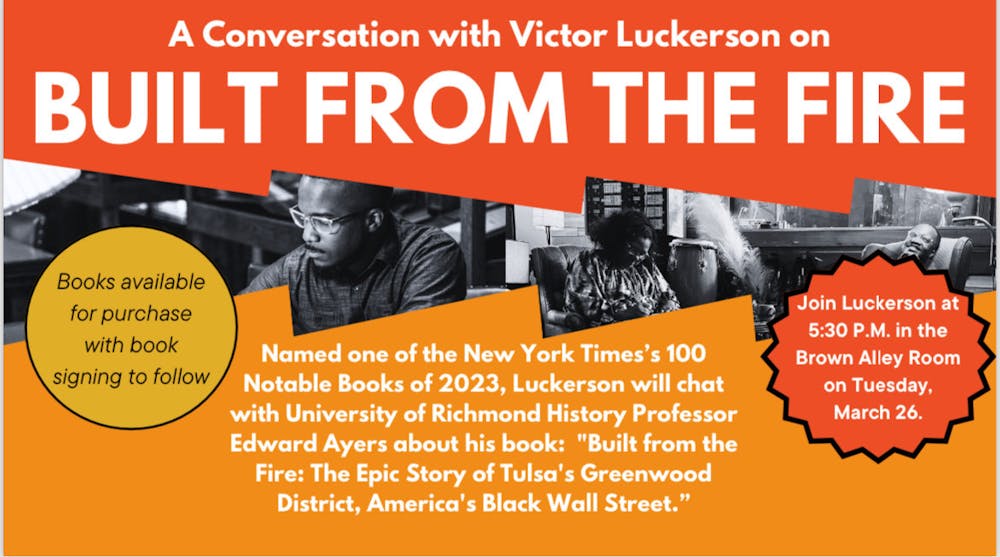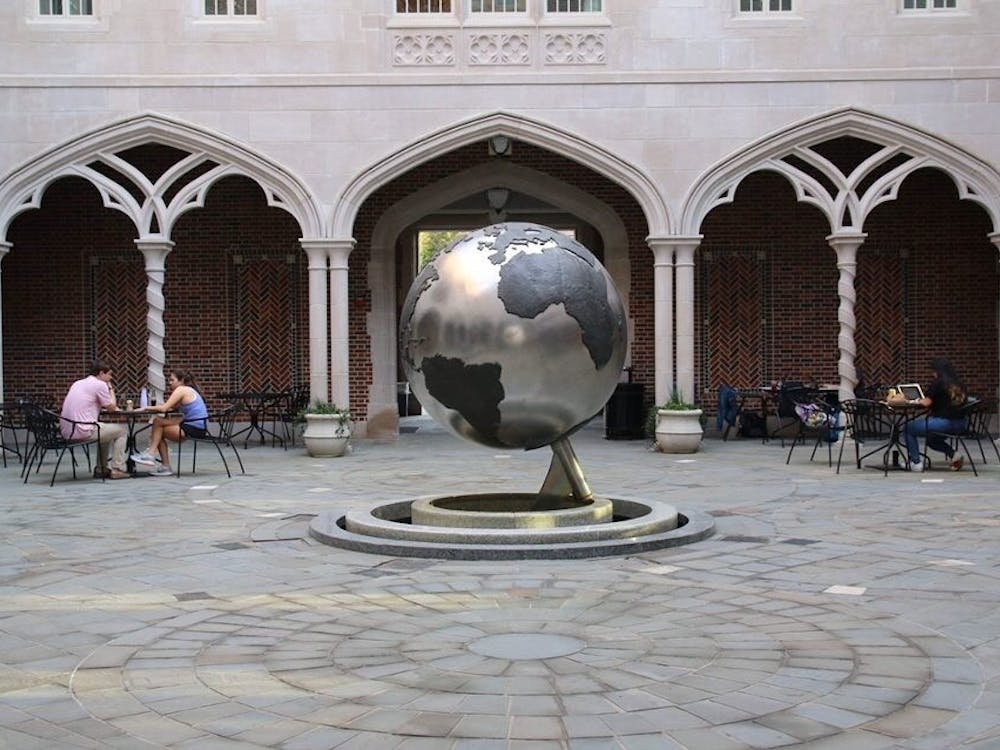The University of Richmond journalism department hosted award-winning author and journalist Victor Luckerson to speak with students and community members about his work promoting underrepresented Black history on March 26.
Luckerson previously served as the editor-in-chief of the University of Alabama student newspaper, The Crimson White, during his undergraduate career, leading the paper’s coverage of the Tuscaloosa tornado in 2011 that killed 53 people, including six UA students. He has also written for Time Magazine and the Ringer.
His book “Built from the Fire: The Epic Story of Tulsa’s Greenwood District, America’s Black Wall Street” details Tulsa, Alabama’s long, dark history of racial violence, discrimination and gentrification. His book was named one of the New York Times’ top 100 notable books of 2023. The talk was moderated by Edward Ayers, the former president of UR and civil war expert.
“So often when we learn about Black history, we're seeing Black folks be depicted as slaves before the Civil War and then the Civil Rights Movement, and it ends up being a very narrow aperture into our whole experience,” Luckerson said at the talk.
After a conversation with a friend of his, Luckerson realized how little people know about Black Wall Street, one of the wealthiest Black communities in the early 20th century based in Greenwood, a neighborhood in Tulsa. So, he wrote an article about it and from there expanded his scope until he landed on his book idea, he said. In exploring Greenwood, he found a balance between not just focusing on the Tulsa Race Massacre, which saw the near total destruction of Black Wall Street and its residents by white supremacists in 1921, but also the revitalization of the community and highlighting the families still there today.
“Journalism was the most practical way to keep telling the stories in a way that impacts the world,” he said. “I think that storytelling is big. It's really important because a lot of people think history is boring. They don't engage in it. Using journalism methods can bring a wider audience and understanding to these historical narratives.”
Robert Nelson, an American studies professor and director of the Digital Scholarship Lab, appreciated Luckerson’s focus on highlighting underreported stories and injustices. He was particularly drawn to Luckerson’s points regarding how modern remembrance efforts should include some form of restorative justice.
“I really appreciated his comments about commemoration as not being a substitute to the word ‘reparations’, which is a really, really important point and this kind of reckoning with 20th-century racism," Nelson said. “Whether that be something as spectacular as the Race Massacre or as systemic as highway construction and urban renewal, both of these are really important histories to grapple with.”
Senior Anthony Rica stayed after the talk to have his book signed.
“I never heard of Black Wall Street before,” he said. “It’s really exciting to learn about something we don’t hear about in school and particularly a different side to a story that the news is, in my opinion, failing to tell.”
Contact news editor Caitlin McCormack at caitlin.mccormack@richmond.edu.
Enjoy what you're reading?
Signup for our newsletter
Support independent student media
You can make a tax-deductible donation by clicking the button below, which takes you to our secure PayPal account. The page is set up to receive contributions in whatever amount you designate. We look forward to using the money we raise to further our mission of providing honest and accurate information to students, faculty, staff, alumni and others in the general public.
Donate Now



